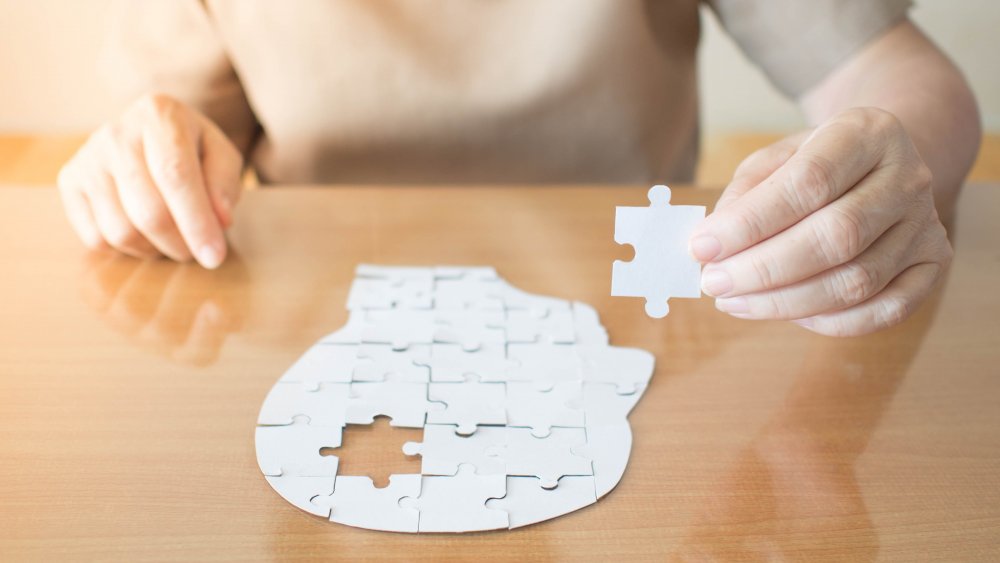Your Body Isn't The Same After Age 40. Here's Why
Turning the big four-OH can be a shocker. Once you cross that threshold, you're officially the age that you might have thought of as "old" when you were a kid. But in actuality, is there really that much of a difference between being over 40 and, say, 39 and a half? You won't necessarily wake up a completely different person overnight, but indeed, there are a number of physical changes you can expect over the next decade, which can impact everything from your waistline to your memory to your sex life. What a fun birthday present!
According to urogynecologist Terri Ann Samuels, lack of energy is the number one complaint of women entering this decade. "The thing... that I hear most commonly is fatigue, the 'I don't have the get-up-and-go anymore,'" she told Sunday Edit. "And the other thing would be the inability to lose weight, it's not coming off the way it used to." Those pounds seem to concentrate specifically around the middle, Samuels added. Other changes are more subtle... and believe it or not, not all of them are bad! Here's what to expect once you're 40-something.
Your monthly cycles will change
Menopause likely won't hit you until you're easing into the next decade; the average age of a complete end to menstruation is age 51 (per CheatSheet). But, your "monthly visitor" won't part ways with you without putting up a fight, and as you battle out this transition period, you could end up with shorter cycles, longer cycles, lighter cycles, heavier cycles... or all of the above. If you used to have 28-day cycles like clockwork, be prepared for some surprises. "It would be nice if the ovaries gradually made less estrogen, but it's a very unpredictable pattern," Jan Shifren, M.D., the director of the Massachusetts General Hospital's Midlife Women's Health Center, told Oprah.
These cycle changes, along with hot flashes, are considered perimenopause, and they can last for two to 10 years. You can't prevent this phase from entering your life, but a healthy lifestyle tends to make the symptoms more bearable. "Women who are able to maintain a regular exercise routine, eat healthy, and manage their stress — because stress can make perimenopausal symptoms worse — may find that the perimenopausal transition is a bit easier for them," JoAnn Pinkerton, M.D., director of the Division of Midlife Health at the University of Virginia Health System in Charlottesville, told WebMD.
Your brain will change, too
If you find yourself forgetting your keys, you can blame that on being over 40, also. According to Pauline Maki, Ph.D., a professor of psychiatry and psychology and the director of the women's mental health research program at the University of Illinois at Chicago, and president of the North American Menopause Society, the actual structure of the brain changes as we decrease our levels of estrogen. "We have estrogen receptors in two brain areas that control memory, and when there's less estrogen, there are structural changes in those areas," she told Oprah. Estrogen also boosts levels of the neurotransmitter that helps us form new memories, which is why having less of it handy might mean that you really need to start writing everything down. Ah, the joys of perimenopause!
Exercise may stave off some of this decline, though. A study found that people who exercised regularly at age 40 had less brain shrinkage at age 60 than those who skipped the gym (per VeryWellFit).
The way you feel about sex will change
You might find yourself less interested in sex due to a dip in estrogen that accompanies perimenopause, and these hormonal changes can make sex painful. "Dryness is a huge issue for women. As we age our estrogen starts to decline, and it can lead to painful intercourse and loss of desire," Laura Berman, Ph.D., a sex and relationship educator and therapist, told Prevention. Plus, let's not forget that you're dealing with fatigue. On top of all of that, the stress we're more likely to feel in our fourth decade — mortgages, career setbacks, dealing with angst-ridden tweens or teens and aging parents — can make you feel less frisky. "Stress is a major factor in low interest," Berman noted.
Or... not. In fact, some women over 40 are having the best sex of their lives. The freedom of no longer worrying about getting pregnant (for those who have gone through menopause, anyway), combined with more self-confidence, and experience with exactly what it takes to achieve orgasm, can be a game-changer.
The key is to stop expecting your body to act like it's 25, and instead, to accept the changes, and even learn to embrace them, according to relationship therapist Shadeen Francis. "Maintaining a relationship of exploration with your body gives you permission to find acceptance of what it is not, and find pleasure in what is," she told Health.




